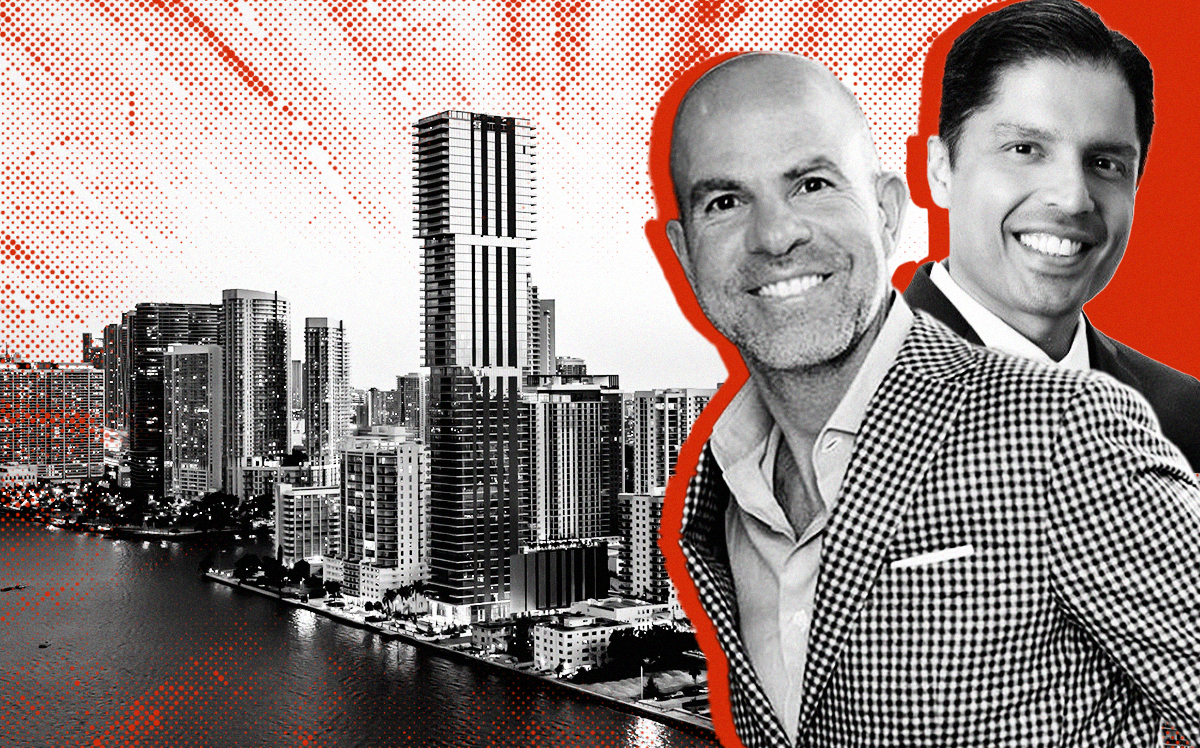David Martin’s $1.2 billion purchase of a downtown Miami assemblage is expected to cause a ripple effect in the market for land sales, boosting investor confidence despite many challenges that remain.
Martin and his Coconut Grove-based firm, Terra, lead SmartCity Miami, a group of undisclosed investors buying the 15.5-acre assemblage Genting Group officially listed for sale late last year. The bayfront property, in Miami’s Arts & Entertainment District, is expected to mark the priciest urban land sale in Florida and one of the most expensive in the country when it closes later this year for $1.225 billion.
It follows hedge fund billionaire Ken Griffin’s $363 million purchase of a bayfront site in Brickell, which set a record last year. That site is planned for Griffin’s Citadel mixed-use office tower. Unlike Genting, the seller of that property, Florida East Coast Realty, wasn’t planning to sell.

Many developers and investors have had their “pencils down,” waiting for market headwinds to subside, said commercial broker Mika Mattingly of Colliers South Florida.
“It’s not just interest rates. It’s insurance. It’s construction costs. It’s everything at one time,” Mattingly said. “Right now people don’t know when the interest rate [hikes] are going to stop or when the banks are going to start lending again.”
Still, Mattingly said land sales and construction of new projects are moving forward, though both are now more “laborious.”
Martin wasn’t alone in his interest in the property. His group was one of five offers of over $1 billion, and one of nine bids in total, according to Avison Young, which marketed the property.
Vacant for years, the downtown Miami site has been referred to as the “hole in the donut.” It’s north of the Kaseya Center, the Pérez Art Museum Miami and the adjacent Phillip & Patricia Frost Museum of Science, and south of Edgewater.
The assemblage, which includes the former Miami Herald headquarters site, could accommodate roughly 8,000 units. The height would be limited by Federal Aviation Administration regulations, likely 649 feet tall. It has 800 feet of frontage along the bay.
Brokers and attorneys agree that the pending sale adds to or creates momentum for other deals in the immediate area and across South Florida. And by the time Martin and his partners finalize their plans and begin construction, costs could be lower.
“It’s a completely different world in three years,” Mattingly said. “Developers all seem to work in the same cycles, so as soon as you start to see other people developing, you lose the scare factor a little bit.”
Genting did not respond to requests for comment. Terra and Bilzin Sumberg, Genting’s law firm, declined to comment.
Avison Young broker Mike Fay, who listed the site with his colleague John Crotty and other team members, declined to comment on the deal. But Fay said that he’s hearing from and/or working with buyers for other sites in the $150 million to $500 million range.
Developer Jerry Hollo, whose firm FECR sold the Brickell site to Citadel last year, said that he and his partners were getting ready to develop that property when Citadel’s unsolicited offer came along. Hollo also said that FECR gets offers “all the time” for Panorama Tower, a luxury apartment mixed-use tower nearby that is not on the market.
Saul Ewing attorney Anthony Kang agreed that the Genting deal is “another affirmation” for Miami. He said it’s rare for a developer to only have to work with one seller for a waterfront site, as opposed to assembling land or even successfully completing a complex condo buyout. That likely made it more appealing to potential buyers.
As the Martin-led SmartCity Miami moves forward, the developer will likely have environmental testing done, as part of the due diligence. That could include archeological studies.
“I wouldn’t be surprised if a lot of the diligence [period] is figuring out what type of approvals they could get and what projects could be built,” Kang said.
The zoning allows for a mix of uses. Martin is expected to develop a mixed-use project, and because part of the site is waterfront, he would likely include luxury residential. Others have cited a significant opportunity for retail. Whatever is built will require a significant investment in infrastructure, similar to other larger scale developments like Miami Worldcenter and Brickell City Centre.
Retail broker Marty Arrivo, founder of Acre Commercial Real Estate, said Swire’s Brickell City Centre and the Craig Robins-led development of the Miami Design District are “proof of concept” that multi-block projects in the urban core can be successful in Miami. Arrivo said that vacancy rates for retail are just over 3 percent, a historic low for Miami-Dade County.
“The market has way more room to grow,” he said, even if there is a correction.
Genting, the Kuala Lumpur, Malaysia-based conglomerate with holdings in casinos, hospitality, biotech and real estate development, sought for years to secure gambling on the site, but failed.
Terra has said little about its development plans for the site, but the firm has been increasingly active in the last few years, and is in talks to buy out an aging condo building in Miami Beach for $500 million.
Many expect the developer will build less density than allowed on the Genting site, as Terra has done that with other waterfront developments. Terra will also likely engage a well-known architect. The firm has worked with Bjarke Engels, Renzo Piano and others. Engels designed Terra’s Grove at Grand Bay project, a pair of twisty condo towers overlooking the bay in Coconut Grove, while Piano designed the luxury condo tower Eighty Seven Park, which was built next to the Surfside condo tower that later collapsed.
Together with the I-395 signature bridge that’s under construction, the bayfront project would likely spur nearby construction. It’s in a rapid transit zone, next to the Adrienne Arsht Center Metromover station.
Read more

Mattingly called the land sale a “real coup” considering that “we’re in the hardest debt market since 2008.”
“We’re seeing strong buyers,” she added. “Maybe you’re not seeing them flocking, but they still exist and they’re still buying in Miami, and they’re still buying trophy properties.”
